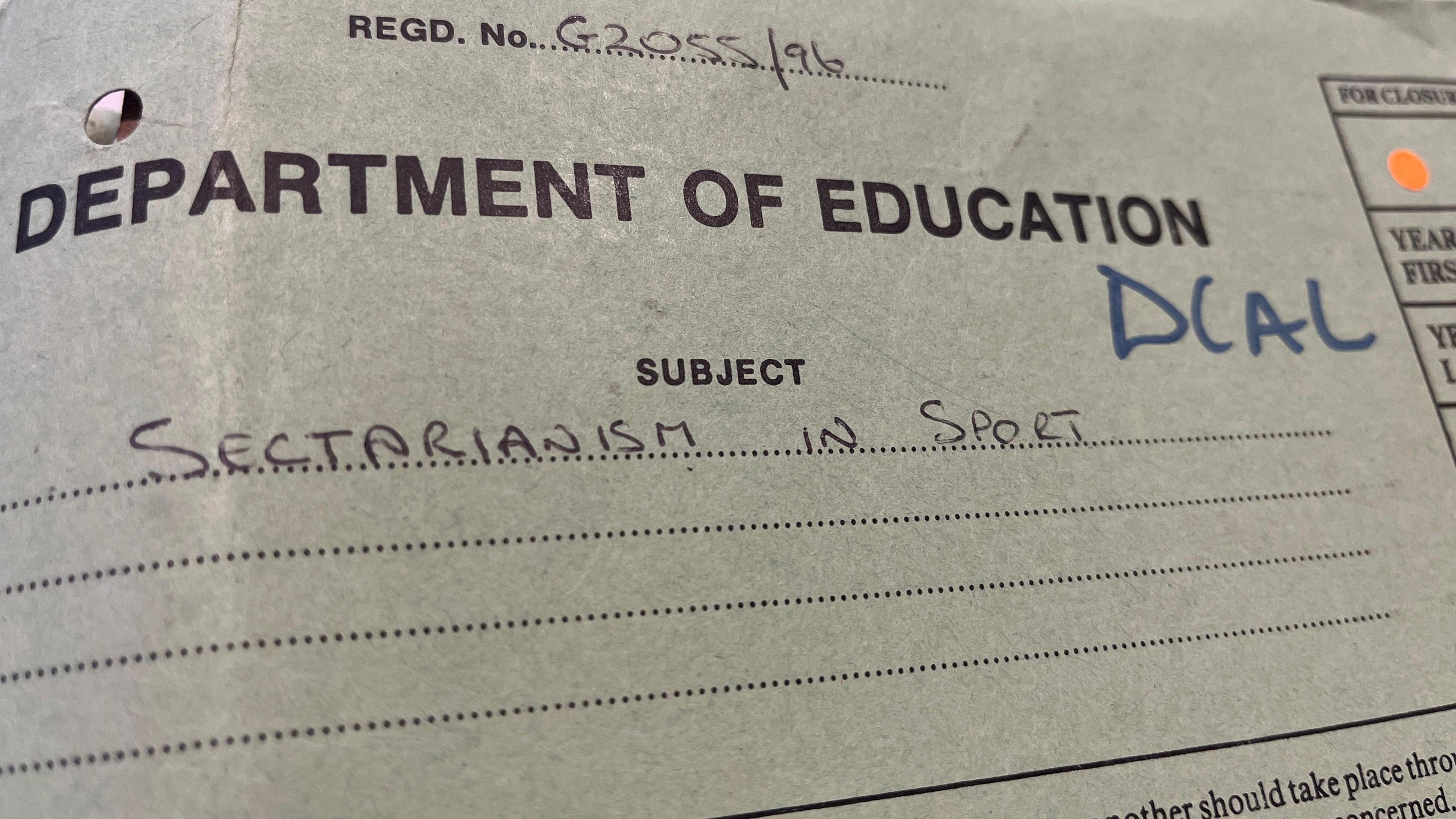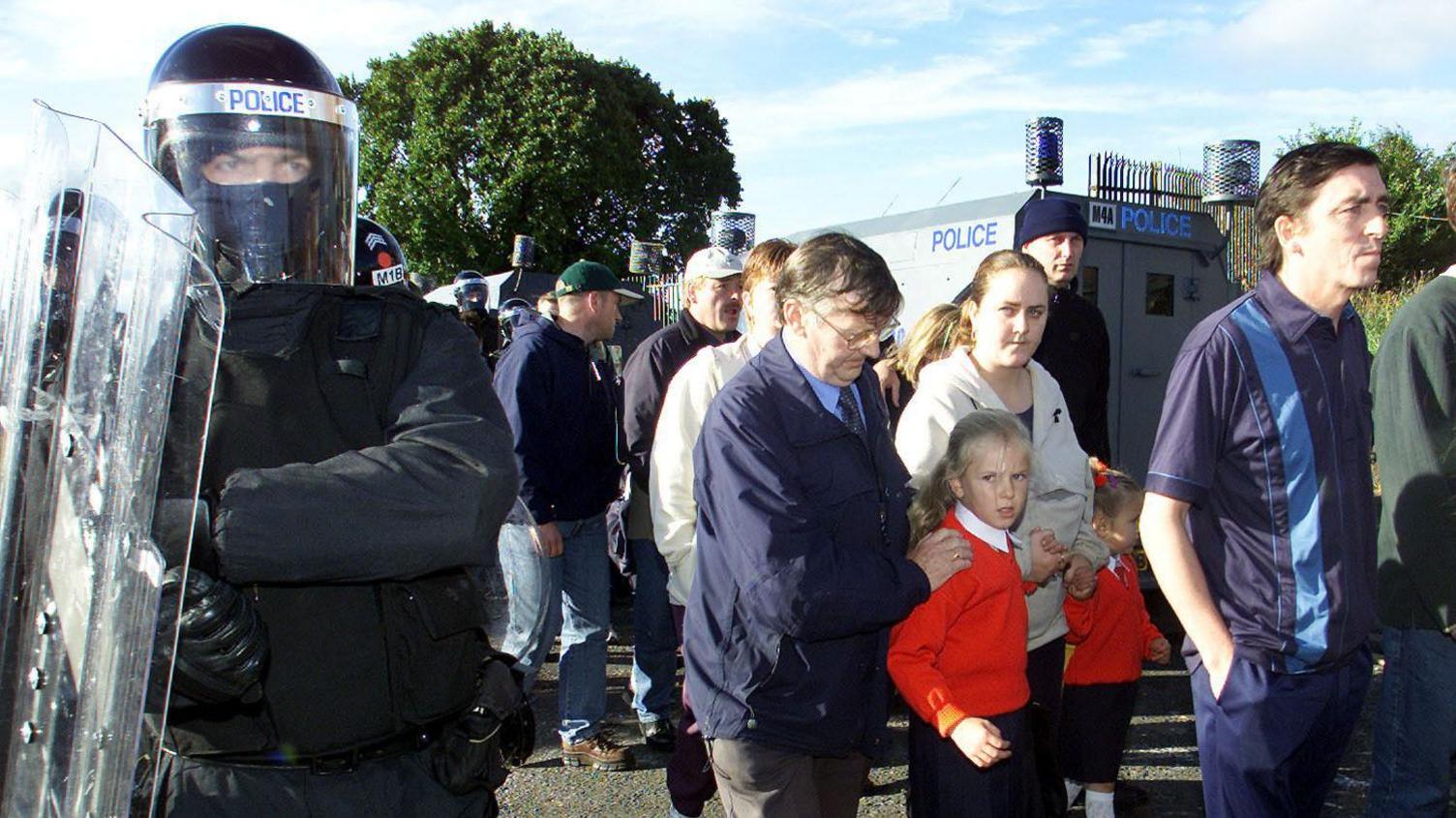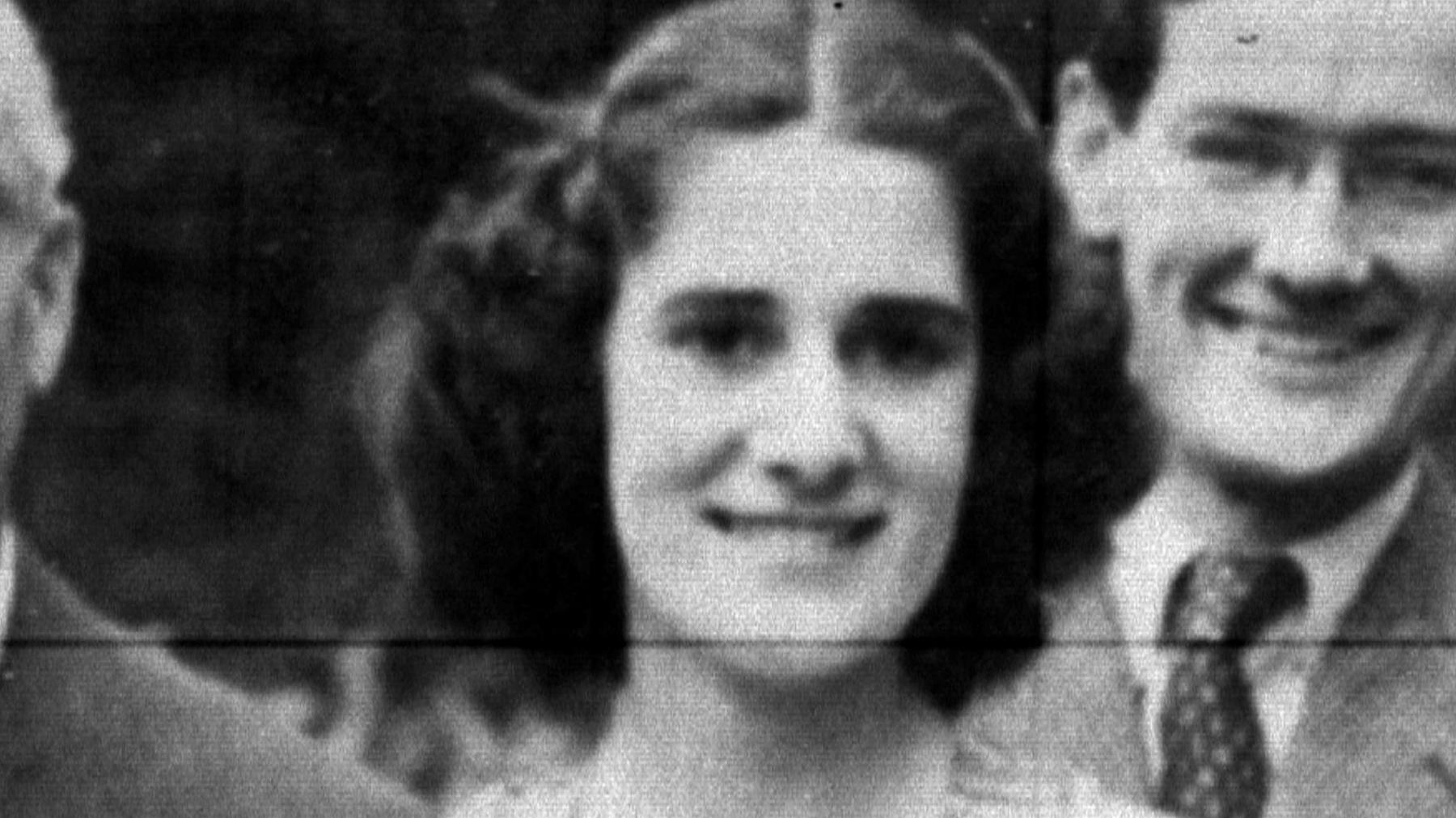Minister wrote to Neil Lennon after death threats, papers reveal

Neil Lennon withdrew from the Northern Ireland team after receiving a death threat
- Published
A further 889 government files have been released to the public, most of which relate to the early years of the Northern Ireland Assembly between 2000 and 2002.
They reveal that sectarianism in sport was one of the most challenging issues facing local political leaders in 2002.
Offensive chanting at soccer matches was the biggest concern.
In September of that year, the Assembly’s Culture Minister, Michael McGimpsey, wrote to the Northern Ireland football captain, Neil Lennon, stating that he was "absolutely appalled" at death threats he had received.
The death threats had forced the Catholic Celtic midfielder to announce his retirement from international football.
Mr McGimpsey praised Mr Lennon’s "remarkable courage" in deciding to continue playing for Northern Ireland following abuse directed at him in Windsor Park earlier in the year.
He also thanked him for "representing our country with distinction" and wished him continued success in his career.

Some 889 government files have been released into the public domain
- Attribution
- Published22 January 2024
The papers were were published by the Public Record Office of Northern Ireland (PRONI) on Friday.
They also show that resolving "the problems of north Belfast" was at the very top of the agenda of first and deputy first ministers, David Trimble and Mark Durkan.
The Holy Cross school dispute in Ardoyne proved to be one of the most challenging issue facing political leaders at the time.
The dispute centred on loyalist protesters who tried to block the route taken to school by pupils and their parents, who were from a Catholic background.
A number of projects identified to reduce tensions included the installation of CCTV along Alliance Avenue, the introduction of community transport, improvements to education and counselling services (with £104,000 ear-marked for the latter), the provision of baby clinics and the establishment of a joint community forum.
The principal focus was on re-aligning the road at the junction of Alliance Avenue and Ardoyne Road.
By January 2002, a basic design had been produced but progress was halted by the resurgence of rioting when Holy Cross Primary re-opened after the Christmas holidays and the killing in Rathcoole of a 20-year-old Catholic postal worker, Daniel McColgan, by loyalist paramilitaries.

Resolving issues in north Belfast was documented as being at the top of the executive's agenda
The road redevelopment was urged by the Concerned Residents of Upper Ardoyne (CRUA), representing local Protestants.
Ardoyne nationalists feared the proposal would restrict access to the primary school and "paused" their involvement in January.
Frustration at a lack of progress on the roadworks led local Progressive Unionist Party (PUP) MLA Billy Hutchinson to offer that "he would do it himself".
The detrimental impact of the polarisation caused by sectarianism emerges starkly from a government review of community relations undertaken in December 2001.
This revealed that women were refusing to avail of antenatal care if it required "attending a clinic located within an area populated by a different religious group".

Racing champion Joey Dunlop, who died in 2000, is referenced in the state papers
Another prominent local sports star to figure in the papers was motorbike rider Joey Dunlop.
County Antrim-based DUP MLAs Ian Paisley Jr, Wilson Clyde and the Reverend William McCrea lobbied to improve infrastructure for motor racing.
Paisely did not want to "miss out on a great opportunity to see this sport developed to the betterment of Northern Ireland".
However, McCrea was anxious about the perception of their actions coinciding with Dunlop’s death in a crash in Estonia in July 2000.
He and others "had an earnest and long-term interest in motorsport in Northern Ireland" and "at no time did we seek to exploit the loss of our racing legend for political purposes as has been suggested in some quarters".
The evolving practices in the new Assembly also feature in the releases.
In 2002, there was a discussion of producing a dictionary of parliamentary terms in Ulster Scots, for use in the Assembly, in conjunction with a similar project in the Scottish Parliament.
A survey of Ulster Scots spoken in the Assembly between November 1998 and June 2002 revealed that a total of 3,018 words had been used by four speakers: the speaker, Lord Alderdice of the Alliance Party (16 words); unionists Ian Adamson (1,296) and Jim Shannon (1,651); and the Sinn Féin Health Minister, Bairbre de Brún (55 words).

Patricia Curran was found murdered in the grounds of her family home
The year 2000 finally saw the exoneration of Iain Hay Gordon for the murder of Patricia Curran in 1952 and two substantial files relating to his efforts to clear his name have now also been released.
The university student, whose father was a judge, was stabbed dozens of times at her family home in Whiteabbey.
The existence of this material was initially discovered by PRONI in 1993 in response to a BBC request during the making of the documentary More Sinned Against Than Sinning?
Gordon was found guilty but insane in 1953 and detained in Holywell asylum until 1960.
The files chart extensive efforts by himself, legal advocates and various journalists (including Ludovic Kennedy) to clear his name.
'Neither mad nor a killer'
Letters in the files display the extremes of public opinion.
A ‘Presbyterian Christian’ writing in 1969 to Northern Ireland Home Affairs Minister, Captain Long, thought the case should be re-examined to "free a young innocent lad’s character that was convicted and made insane to save Lord Justice Curran Family [sic] from disgrace".

Iain Hay Gordon was wrongly convicted of one of Northern Ireland's most notorious murders
An anonymous correspondent implored the minister not to be "brainwashed" by an "obvious trap" to "re-open all murder cases".
Gordon was convicted on the basis of a dubious confession and by 1969 the British Home Office conceded that there was sufficient weight of opinion "to justify us inquiring whether there has been a miscarriage of justice", but the outbreak of the Troubles made the Home Office wary of interference in the domestic judicial affairs of Northern Ireland.
Gordon’s hopes of appealing under the 1995 Criminal Appeal Act were dashed by the exclusion of insanity cases.
This resulted in an amending act in 1999 which eventually led to the acquittal of a man who was neither mad nor a killer, 47 years after he was branded a murderous "criminal lunatic" in an infamous miscarriage of justice.
Professor Marie Coleman is Professor of Twentieth Century Irish History at Queen’s University Belfast